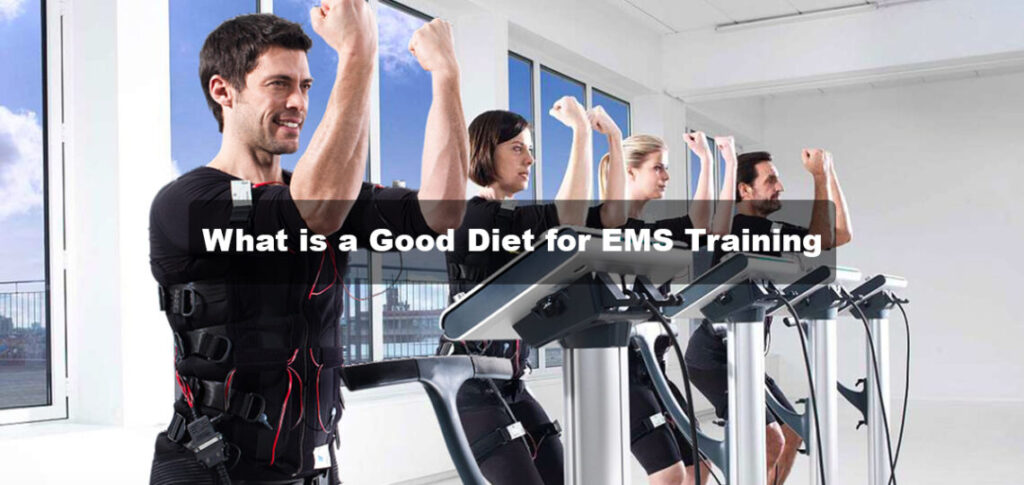-
Table of Contents
- Proper Nutrition is Very Important During Electrical Muscle Stimulation Training
- The Science Behind Electrical Muscle Stimulation Training
- The Importance of Proper Nutrition
- Key Nutrients for EMS Training
- 1. Carbohydrates
- 2. Proteins
- 3. Healthy Fats
- 4. Hydration
- 5. Micronutrients
- Case Studies and Statistics
- Summary
Proper Nutrition is Very Important During Electrical Muscle Stimulation Training
Electrical Muscle Stimulation (EMS) training has gained significant popularity in recent years as a time-efficient and effective way to build muscle strength and improve overall fitness. This innovative training method involves the use of electrical impulses to stimulate muscle contractions, mimicking the effects of traditional exercise. While EMS training offers numerous benefits, it is crucial to understand that proper nutrition plays a vital role in maximizing the results and ensuring optimal performance during these sessions. In this article, we will explore the importance of proper nutrition during EMS training and provide valuable insights on how to fuel your body for success.
The Science Behind Electrical Muscle Stimulation Training
Before delving into the role of nutrition, it is essential to understand the science behind EMS training. During an EMS session, electrodes are placed on specific muscle groups, and electrical impulses are delivered, causing the muscles to contract. These contractions are more intense and frequent than those achieved through voluntary muscle contractions during traditional exercise. As a result, EMS training can activate a higher percentage of muscle fibers, leading to increased strength, muscle growth, and improved overall fitness.
The Importance of Proper Nutrition
While EMS training can provide remarkable results, it is important to recognize that the body requires adequate nutrition to support the increased demands placed on the muscles. Proper nutrition not only fuels the body for optimal performance during training but also aids in muscle recovery and growth. Here are several reasons why nutrition is crucial during EMS training:
- Energy Production: EMS training is intense and requires a significant amount of energy. Consuming a well-balanced diet that includes carbohydrates, proteins, and fats ensures that the body has the necessary fuel to perform at its best.
- Muscle Recovery: EMS training stimulates muscle contractions at a higher intensity than traditional exercise, leading to increased muscle damage. Adequate protein intake is essential for muscle repair and recovery, allowing for optimal adaptation and growth.
- Hydration: Proper hydration is crucial for overall performance and muscle function. During EMS training, muscles are contracting more intensely, leading to increased sweating and fluid loss. Staying hydrated helps maintain muscle function and prevents fatigue.
- Nutrient Delivery: Nutrients such as vitamins, minerals, and antioxidants play a vital role in muscle function and recovery. Consuming a variety of fruits, vegetables, and whole foods ensures that the body receives these essential nutrients, supporting optimal performance and recovery.
Key Nutrients for EMS Training
Now that we understand the importance of proper nutrition during EMS training let’s explore the key nutrients that should be incorporated into your diet to maximize your results:
1. Carbohydrates
Carbohydrates are the body’s primary source of energy. During EMS training, the body relies heavily on carbohydrates to fuel the intense muscle contractions. It is recommended to consume complex carbohydrates such as whole grains, fruits, and vegetables, as they provide a steady release of energy and are rich in essential vitamins and minerals.
2. Proteins
Proteins are the building blocks of muscles and are essential for muscle repair and growth. During EMS training, the muscles experience increased stress and damage, making protein intake crucial for optimal recovery. Incorporate lean sources of protein such as chicken, fish, tofu, and legumes into your diet to support muscle repair and growth.
3. Healthy Fats
Healthy fats are an important component of a well-rounded diet. They provide a concentrated source of energy and aid in the absorption of fat-soluble vitamins. Include sources of healthy fats such as avocados, nuts, seeds, and olive oil in your meals to support overall health and provide sustained energy during EMS training.
4. Hydration
Proper hydration is essential for optimal performance and muscle function during EMS training. Aim to drink an adequate amount of water throughout the day, and increase your fluid intake during and after your EMS sessions to replenish lost fluids and prevent dehydration.
5. Micronutrients
Micronutrients, including vitamins and minerals, play a crucial role in muscle function and recovery. Ensure that your diet includes a variety of fruits, vegetables, and whole foods to provide your body with the necessary micronutrients. Consider incorporating foods rich in vitamin C, vitamin E, magnesium, and zinc, as they have been shown to support muscle recovery and reduce oxidative stress.
Case Studies and Statistics
Several studies have highlighted the importance of proper nutrition during EMS training. In a study published in the Journal of Sports Science and Medicine, researchers found that athletes who consumed a high-protein diet experienced greater muscle hypertrophy and strength gains compared to those with lower protein intake. This demonstrates the significant impact of nutrition on muscle adaptation and growth during EMS training.
Another study published in the European Journal of Applied Physiology examined the effects of carbohydrate intake on endurance performance during EMS training. The researchers found that athletes who consumed a carbohydrate-rich meal before their EMS session had improved endurance and delayed fatigue compared to those who did not consume carbohydrates. This highlights the role of carbohydrates in providing sustained energy during intense EMS training sessions.
Summary
Proper nutrition is a crucial component of maximizing the benefits of EMS training. By fueling your body with the right nutrients, you can enhance your performance, support muscle recovery, and achieve optimal results. Remember to consume a well-balanced diet that includes carbohydrates, proteins, healthy fats, and micronutrients. Stay hydrated and prioritize nutrient-rich foods to support your body’s needs during EMS training. By combining proper nutrition with regular EMS sessions, you can take your fitness journey to new heights and achieve your desired goals.




